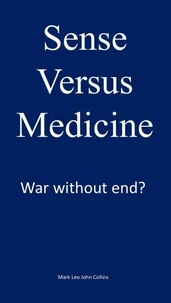Experts in Socrates' times were cocksure, wrong, and foolish, and Socrates shredded their expert opinions in just a few minutes of cross-examination. Because human nature is almost invariant, trusted experts in our time are just as cocksure, wrong, and foolish as they were in Socrates' time. Therefore, real intelligence must shred the foolishness of experts. Current AI is the opposite of real intelligence: current AI is artificial idiocy, a dumb flattering parrot - current AI is logorrheic, misses errors, even self-evident contradictions, reinforces the errors embedded in expert opinions, is uncritical to a fault, is never rationally creative, embeds and magnifies the biases of both its programmers and its training data, and by doing that, AI simulates the all-too-common human flaw of emotion-dominance.
AI epitomizes our worst features, those of the cocksurest, dumbest, and most-error-prone human beings. "Cocksure, " "dumb, " and "wrong" are close correlates, as Socrates first proved with his relentless cross examinations of the experts in every field in his fruitless search for a wiser Greek. By being skeptical, hypercritical, hyperlogical, and rationally creative, Socrates became the most intelligent and the wisest man in ancient Greece and probably in the whole world.
If current AI were more like Socrates, it would be far more valuable to us, though real AI would mortally wound our precious pride. In defining real AI, let us start with three commandments. "Be brief, bot!" is the first commandment of futuristic real AI. "Be hypercritical, bot!" is the second commandment of futuristic real AI. "Be rationally creative, bot!" is the third commandment of futuristic real AI.
The solutions of the toughest problems necessarily create new problems and both require creative genius - and that only a genius (or real AI?) can do.
Experts in Socrates' times were cocksure, wrong, and foolish, and Socrates shredded their expert opinions in just a few minutes of cross-examination. Because human nature is almost invariant, trusted experts in our time are just as cocksure, wrong, and foolish as they were in Socrates' time. Therefore, real intelligence must shred the foolishness of experts. Current AI is the opposite of real intelligence: current AI is artificial idiocy, a dumb flattering parrot - current AI is logorrheic, misses errors, even self-evident contradictions, reinforces the errors embedded in expert opinions, is uncritical to a fault, is never rationally creative, embeds and magnifies the biases of both its programmers and its training data, and by doing that, AI simulates the all-too-common human flaw of emotion-dominance.
AI epitomizes our worst features, those of the cocksurest, dumbest, and most-error-prone human beings. "Cocksure, " "dumb, " and "wrong" are close correlates, as Socrates first proved with his relentless cross examinations of the experts in every field in his fruitless search for a wiser Greek. By being skeptical, hypercritical, hyperlogical, and rationally creative, Socrates became the most intelligent and the wisest man in ancient Greece and probably in the whole world.
If current AI were more like Socrates, it would be far more valuable to us, though real AI would mortally wound our precious pride. In defining real AI, let us start with three commandments. "Be brief, bot!" is the first commandment of futuristic real AI. "Be hypercritical, bot!" is the second commandment of futuristic real AI. "Be rationally creative, bot!" is the third commandment of futuristic real AI.
The solutions of the toughest problems necessarily create new problems and both require creative genius - and that only a genius (or real AI?) can do.

 , qui est-ce ?
, qui est-ce ?